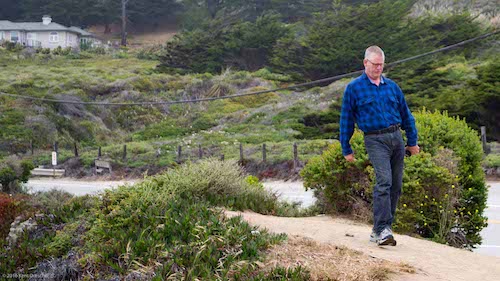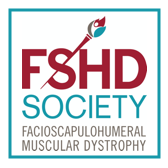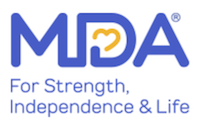FSHD
“People who have FSHD must cope with continuing, unrelenting and never-ending losses… no matter at which stage of life, the disease makes itself known, there’s never after that any reprieve from continuing loss of physical ability…. FSHD affects the way you walk, the way you dress, the way you work, the way you wash, the way you sleep, the way you relate, the way you parent, the way you love, the way and where you live, the way people perceive you, interact with you, and treat you.… Each new day brings renewed awareness of the things you may not be able to do the next day.”
(Daniel Perez)
I was diagnosed with facioscalupohumeral muscular dystrophy (FSHD) when I was 28, nearly 10 years after my symptoms first visibly emerged. The diagnosis changed my life – I just didn’t know how much at the time. FSHD is a genetic neuromuscular disease characterized by progressive weakening of skeletal muscles throughout the body over time. At present there is no cure or effective treatment for FSHD. The disease is estimated to affect one in 10,000 to 20,000 people, making it one of the more common neuromuscular disorders. The name of the disease is derived from the areas of the body where muscle deterioration is most commonly seen first, that being the face (facio), shoulders (scapulo) and upper arms (humeral).
My work with combat veterans who struggle every day with the devastating mental and physical challenges they received serving this country, made me aware of the intense burdens others bear. I am grateful each day for all that life has brought me. FSHD has and will continue to affect my body. It’s not however who I am. I’ve had educational opportunities denied to others, obtaining a Master’s degree and a doctorate after college. I was ordained as a minister in the Presbyterian Church (USA). I retrained to become a licensed clinical psychologist and worked for 27 years for the VA healthcare system. I’m a husband, married to the same wonderful woman for more than 48 years. I’m a father of two incredible sons – now married themselves to amazing women. I’m the ever excited grandfather of a four beautiful grand daughters, and one grandson. All those things are part of the amazing tapestry of experiences I’ve had as a human being. They and many more have shaped the me that exists apart from all these things – the me with the power to choose what to value, and how to live my life.



